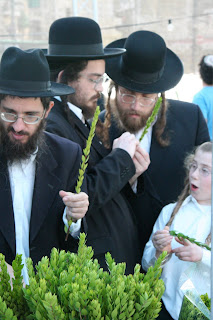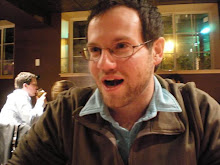Cairo is the largest city on the African Continent and in the Middle East. Roughly it is the size of New York, with 8.5 million inhabitants within the city limits and 18 million in the metro region (New York has 8.5 in the city limits and 19 in the metro region).
To get there, we took a bus to Eilat, at the southern tip of Israel, spent the night there, then crossed the border at the crack of dawn and took another bus on to Cairo. From this bus we had a view of Israel, Egypt, Jordan and Saudi Arabia all at once! Alas, there was no way to capture it on film. In Egypt, we drove under the Suez Canal. Somehow it had escaped my thinking that we would have to cross the Canal. Then when I did realize that this was a necessity, I would have figured a bridge, but I imagine a tunnel is just more practical in a lot of ways.
We went through a tour company, because otherwise we would have had many hassles at the border, and then trying to get across the Sinai Peninsula (which is not exactly safe nor is it replete with public transportation). It was great to have the tour company take care of these things, the rest of the things they took care of... Let's just say that neither my sister nor I will ever be going on a planned tour again. And really who were we kidding in the first place? Heckler children just don't behave themselves and listen to a tour-guide when they could be off exploring subways and street food.
Anyway, Cairo is vivacious, dirty, and full of people. Just the kind of thing a New Yorker (even one living in exile) finds beautiful in a city. Our guide, Mohammed had the theory that if you drive or walk past something, even if you don't notice it was there, you've seen it. This posed a slight problem to the residual five year old in me who thought King Tut was the coolest thing ever and could have spent hours looking at his funereal mask (eleven kilograms of gold). It also posed a slight problem for the ceramicist, who when in a room surrounded by Egyptian Faience (an interesting self glazing clay that is one of the earliest examples glazed ceramic) was told to hurry up. Nonetheless, I made a good time of it and got to see a good number of the artifacts from King Tut's tomb.
the pyramids
Annabelle could have skipped them I think, in favor of more walking around Cairo. That residual five year old I mentioned earlier was really excited about them. Rather than post two many photos (you've seen them all I'm sure), here is a photo of Annabelle and me in front of the Pyramid of Khafre. And a photo of the same pyramid, without the siblings. The Egyptian Antiquities Authority has done a good job of preventing the area directly around the Pyramids from becoming the disgusting tourist trap I thought it would be. Not to say there weren't plenty of men on camels trying to sell us things (no, really), but the whole place was relatively quiet. Immediately outside the gates... Not so much.


the market and the food



 We wandered around the Bazar. I've probably posted more than enough photos of markets, but this one was really beautiful. Here are some of the shops we walked past. I didn't include a few, like the live chicken store, or the haberdasher, who was busy making traditional and contemporary hats with a coal fired steam table. But here is a beautiful little coffee shop, the charcoal vendor, some pottery fresh from the wheel drying in the open, and a textile merchant. I'm kicking myself a little that I didn't purchase any of the textiles.
We wandered around the Bazar. I've probably posted more than enough photos of markets, but this one was really beautiful. Here are some of the shops we walked past. I didn't include a few, like the live chicken store, or the haberdasher, who was busy making traditional and contemporary hats with a coal fired steam table. But here is a beautiful little coffee shop, the charcoal vendor, some pottery fresh from the wheel drying in the open, and a textile merchant. I'm kicking myself a little that I didn't purchase any of the textiles.And what would a Travel Blog from Paul be without some notes about food?
An Egyptian staple is called Qoshari. It consists of noodles, lentils, other noodles, rice, chickpeas, a spicy spicy tomato sauce, and crispy onions. The cart pictured below sells Qoshari.
The dude with the deep frier was making felafel and fries, and fish cakes. I had some felafel. The photo (credited to Annabelle Heckler) does a pretty good job of describing my feelings about it.



the minarets



Cairo has been a muslim city since the tenth century. It is called the City of a Thousand Minarets. I think the City of Ten-Thousand Minarets might be more accurate.
The Mosques in the old city of Cairo were filled with life. The Madrassas (the same root as the Hebrew Midrash, and the same idea as the Jewish Beit Midrash) were full of young men studying (there were several Madrassas for women as well, but I wasn't welcome to enter). I think that Muslims and Jews must use the same printers to publish their holy books. They had the same red blue and green leather bindings, and similar patterns on the pages. To anyone who doesn't know the difference, the barefooted men in skullcaps studying in a Madrassa couldn't possibly look all that different from their shod cousins in a Beit Midrash. In point of fact, I do know the difference, and yet was struck by how similar everything was.
I didn't go into the prayer hall. Something about being a tourist where people pray makes me uncomfortable. This might come as a surprise being that right now I live in one of the prime locations for religious tourism, but there it is.
I could have stared all day at the repeating geometric patterns that are basis for the architectural elements of the Mosques I went in or walked past. I probably would have if Annabelle hadn't dragged me away.
life on the streets (and roads)
Almost every intersection in Cairo has a traffic light. Most of the traffic lights just blink orange all the time. Some of them actually go through the proper cycles. No one seems to pay any attention to any of them. We were given advice by many people on how to cross the street. The advice differed, but ended the same... Take a Deep Breath and Pray. People just kinda walk along the highways, and cross where ever they'd like (with a tinge of fear in their eyes). Everyone uses their horns continuously, although it isn't the angry "get the hell out of my way" horn usage one sees in Israel. It is more of a conversation. One driver starts "I'm here," another chimes in "You're THERE?" "Yes I'm here," replies the first "Oy, I'll move," finishes the second. And what a collection of vehicles! From the tinted window Mercedes with armed guard, to the refurbished 1950's Peugot still sporting the French license plates (under the egyptian ones), to the vintage vespa, to the truck that I can't even begin to describe. And yes, there were even a few donkeys and camels.




Driving back, we went under the Suez Canal again, and enjoyed the stars, which, even from the inside of our van, were brighter than I've seen in years. It was a bit a of a whirlwind. But oh, how about that Qoshari? Oh, I nearly forgot about the subway. I didn't really get a good photo of the subway itself. But here's the sign...




































